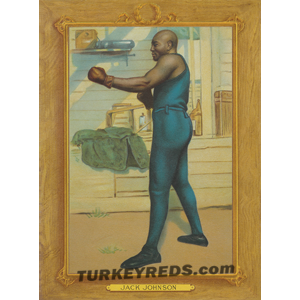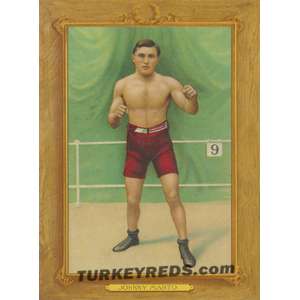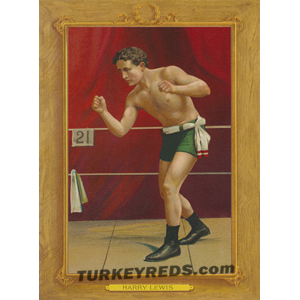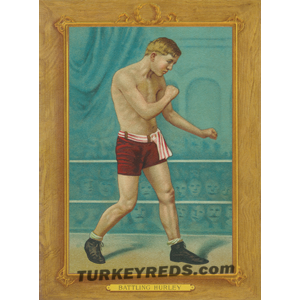Description
High resolution available for download
Jack Johnson
Born: March 31, 1878 Galveston, Texas
Died: June 10, 1946 (aged 68) Franklinton, North Carolina
Height: 6 ft 1⁄2
Division: Heavyweight
Record:
Total fights: 104
Wins: 73
Wins by KO: 40
Losses: 13
Draws: 10
No Contest: 5
Biography:
Nicknamed the Galveston Giant, was an American boxer who, at the height of the Jim Crow era, became the first African American world heavyweight boxing champion (1908–1915). Among the period’s most dominant champions, Johnson remains a boxing legend, with his 1910 fight against James J. Jeffries dubbed the “fight of the century.”
Johnson was born the third child of nine, and the first son, of Henry and Tina “Tiny” Johnson, two former slaves who worked blue collar jobs as a janitor and a dishwasher to support their children and put them through school. His father Henry served as a civilian teamster of the Union’s 38th Colored Infantry, and was a role model for his son. As Jack once said, his father was “The most perfect physical specimen that he had ever seen,” although his father was only 5 ft 5 in (1.65 m) and left with an atrophied right leg from his service in the war.
Growing up in Galveston, Texas, Johnson attended five years of school and was known as a bright, talkative, and energetic kid. Like all of his siblings, Jack was expected to work to keep the family going while he was growing up. He helped sweep classrooms to ease the work for his father, and he worked for the local milkman before school, taking care of the horses while the milkman got off to make deliveries. For this work he was paid 10 cents and a red pair of socks, which his boss had a seemingly endless supply of, every Saturday.
From 1902-1907 Johnson won over 50 matches, some of them against other African-American boxers such as Joe Jeannette, Sam Langford, and Sam McVey. Johnson’s career was legendary—in 47 years of fighting, he was only knocked out three times—but his life was full of problems. Johnson was not fully accepted as champion and white supremacists searched methodically for what they termed a “great white hope” to take the title away from him. They arranged for ex-heavyweight champion James Jeffries to fight Johnson in Reno, Nevada, in 1910, in what was billed at “The Fight of the Century.” However, their “hope” was dashed in the fifteenth round. The aftermath of the fight left at least 23 blacks and two whites dead in racial incidents around the country.
Johnson had the quality to endure, both inside the ring out outside of it. As a boxer, some of his greatest victories came after he himself had been knocked down and appeared to be nearing defeat. Outside the ring, he took the worst that America’s racists could give him and gave it right back to them by his haughty attitude and public breaking of racial taboos.
Although Jack grew up in the South, he said that segregation was not an issue in the somewhat secluded city of Galveston, as everyone living in Galveston’s 12th Ward was poor and went through the same struggles. Johnson remembers growing up with a “gang” of white boys, in which he never felt victimized or excluded. Remembering his childhood, Johnson said, “As I grew up, the white boys were my friends and my pals. I ate with them, played with them and slept at their homes. Their mothers gave me cookies, and I ate at their tables. No one ever taught me that white men were superior to me.” Jack carried this mentality to his boxing career, as he would not be intimidated to fight any man, no matter their race.
More info:
https://en.wikipedia.org/wiki/Jack_Johnson_(boxer)
http://boxrec.com/en/boxer/1187
http://www.newworldencyclopedia.org/entry/Jack_Johnson_(boxer)








